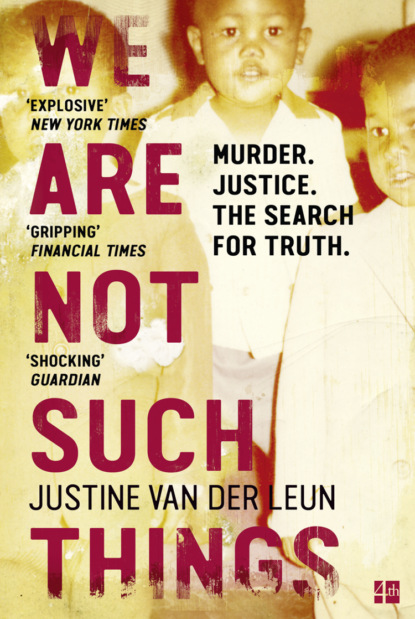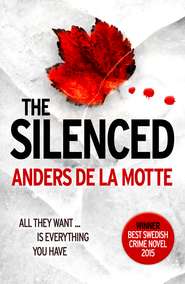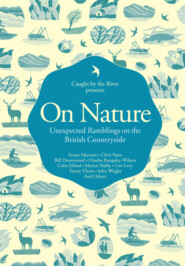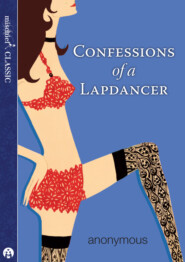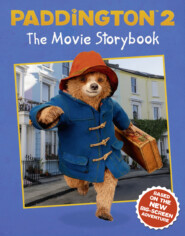По всем вопросам обращайтесь на: info@litportal.ru
(©) 2003-2025.
✖
We Are Not Such Things: A Murder in a South African Township and the Search for Truth and Reconciliation
Настройки чтения
Размер шрифта
Высота строк
Поля
When we did speak, roughly half of what we said got lost in translation. My American accent and his South African lilt were filtered through a sometimes patchy mobile network, his cheap, battered cellphone, and my old-model BlackBerry. We both spoke too fast. Easy’s English wasn’t great, and my Xhosa was nonexistent. When we hung up, I suspected neither of us had the first idea of what had just happened. Sometimes, he raised and dashed my hopes in a matter of seconds.
“I cannot meet today, but let’s make a plan,” he said one Friday.
“Great! What’s the plan?”
“The plan is, you call me Monday. Then we see what’s happening.”
I tracked him doggedly, finding him a few times only by pure luck. He was at once the best-natured and most unreliable person I’d ever dealt with. We would arrange to meet at noon on any given day, and I would arrive at the spot, usually near his office in town. In the best-case scenario, Easy showed up two hours late. In the usual scenario, he did not show up at all. In the worst-case scenario, he not only did not show up, but his phone would be off for the next week. There were excuses, delivered kindly: His boss sent him to Main Street in a suburb, but this particular suburb had a “Main Street” and a “Main Street Road,” and he could not figure out which was which, and for that reason, he’d been AWOL for three hours. His daughter had “fever”—later I’d find that the majority of township illnesses were referred to in English, generically, either as “fever” or “high blood”—and needed the doctor immediately. He was under stress from work. He was under stress from his family. He would be there in ten minutes. In another ten minutes. Just ten more minutes. But ten minutes never meant ten minutes. It meant, “Wait there,” or “Don’t be mad, buddy,” or “I can’t deal with you now.”
Easy called this “African time.” It derived from ancestral rituals, he explained, in which Africans welcomed their ancestors to traditional ceremonies. You couldn’t very well rush an ancestor, he said, so you had to just wait around until the ancestor showed up. Also, consider transportation issues.
“There can be problems, there can face obstacles.” Your horse could collapse, for example. And if your horse collapsed, you’d be pretty late.
“Easy, I don’t see you riding around on a horse.”
He tried a more timeless and convenient explanation: “African time is, you’re not guilty. If we invite you at one, we can also start at two or three. When you arrive, we’re not mad. You are there.”
So when the opportunity to see Easy—better yet, to hold him captive in my car so he could not escape and would have to talk to me—presented itself, I did my best to push aside any nagging doubts. I drove in the shadow of Lion’s Head peak, veered left to stay on the N2, past the stinky old power plant and the trash-strewn fields, past Cape Town’s first township, Langa, and the shacks on its outskirts, past the Joe Slovo Village of cement apartment blocks overlooking the highway beneath a faded billboard offering affordable housing that the advertisement promised would provide that ever-elusive “DIGNITY,” past the broken-down horses grazing highway-side on the outskirts of Bonteheuwel. I turned off the N2 as directed and veered left along a barren strip of dry field. People were crossing the road at a clip, clutching each other’s arms, as cars sped through. My palms were moist now, my back damp. Everything looked foreign and incomprehensible. An otherworldly junk dealer with dreadlocks, blue eyes, and gigantic silver hoop earrings rode atop old bed frames and scrap metal piled high on a horse-drawn cart. A newspaper vendor at the stoplight held up the DailySun, an English-language tabloid with a multimillion-strong, almost entirely black readership. Today’s headline: PROPHET BURNT TO DEATH.
An ancient man with a dent in his head limped to the car window, hands out, eyes vacant. I shook my head, as though I could do nothing for him despite my most sincere wishes to help. The light changed to green and I turned into Gugulethu. Here was the Shoprite Center Amy had once passed. It contained a liquor store owned by Chinese immigrants, a KFC, a hardware store that advertised an array of gun safes, and a halal butchery, the slogan of which was “Where the Rainbow Nation Meat.” Inside the actual Shoprite supermarket, where guards armed with machine guns stood at the doors to stem the tide of perpetual stickups, a bulletin board was plastered with signs offering “cash in a flash :-) … forward ID number, income, and name,” as well as a “mobile fridge for hire … for weddings, funeral, church event and much more,” and pleas for work:
My name is Thelma Ima Zimbabwe Im looking for a job any job household to look after children Im 24 years old.
My name is vuyadwethu. I’m xhosa girl. I’m 32 years old. I’m looking for kind of job like clean house or looking after children. The language I understand is English and Afrikaans. But I’m not perfect. I will be glad when you call me. I really need a job Thanks
Looking for a job trainee cook book keeper c work house maid
I knew Easy, I reminded myself. But then I started to wonder: do we really know anybody at all? Perhaps this was a game, and I was the all-too-willing pawn, lured straight into a bloody setup. Witnesses in Gugulethu kept their traps shut. There is very little worse than to be considered an impimpi, or snitch. In the old days—and still, in the far unseen reaches of the vigilante-controlled settlements where cops dare not set foot—groups would “necklace” a suspected impimpi or a thief or anyone tried and convicted in the local kangaroo courts. The grimly euphemistic necklace is, in fact, a gasoline-soaked tire that is secured around a victim’s neck and set alight.
Nobody knew me in this part of the woods. I thought of all the terrible rumors I’d heard about the townships; I had dismissed them, though I also had evidently absorbed them. Wasn’t this the Wild West? Was anyone safe here? And didn’t Easy once get sentenced to eighteen years in prison for the stoning and stabbing death of a young white woman?
Then I saw Easy standing at the bus stop, waving at me, and I slowed. He was wearing a pressed teal and navy striped button-down shirt tucked into gray trousers. There were some folks waiting for the bus, mostly heavyset grandmas in long skirts, laden with grocery bags. There were a few kids holding hands with each other, a baby tied on his mom’s back with a bath towel, a woman reading a book, some teenage boys kicking a soccer ball down the street. An elderly man in a newsboy cap was selling fruit beneath a ragged umbrella. A wave of pedestrians, some in high heels and some in slippers, passed back and forth from the Shoprite and over the bridge into Gugulethu. A few girls had clay smeared over their faces to protect their skin from the sun. Nobody noticed me, as far as I could tell.
Easy got in. He slumped in the seat and sneezed loudly. His nose was stuffy, his eyes puffy.
“I have flu,” he announced, sniffling. “When you have flu, you need your mom to help, to listen your cough.”
A young couple walked by, arms wrapped around each other, eating ice cream. I felt a tear of salty sweat trickle down my chest and settle in my belly button.
When I first arrived in Cape Town, I wore a sapphire-and-rose-gold engagement ring on my left ring finger, and when I passed black men on the street, I unconsciously turned the ring inward, so that the stone pointed at my palm. I tried to change the behavior, but even when I left the ring just as it was, I still felt that hot urge, as involuntary as a reflex. Soon, I took the ring off and put it in the safe in our seaside rental apartment, since almost every South African home has a safe welded into the back of a closet. But no matter. Today, I didn’t need a circle of precious metal to expose me, if only to myself; the drive to Gugulethu had done the trick. I offered Easy a tissue and we turned back toward town.
That day, Easy and I sat on a café patio across from the ocean. The clientele at lunch hour was mostly rich moms in yoga pants; their husbands worked and their maids cooked and cleaned, and so between school drop-off and school pickup, they practiced Pilates, ordered salads, and had chemicals applied to their hair and faces to look more youthful. Easy ordered a vitamin-C-enriched sports drink “for hydration,” and, deeming it the least complicated item on the menu, Chinese chicken. He tried to express to the teenage waitress that he wished only for the chicken element of the dish, minus vegetables or sauces, but she stared at him with wonder and he gave up. When his lunch arrived, he ate it daintily, picking out every sliver of red pepper and pineapple.
I started off with a long introduction, rambling on uncertainly until Easy looked at me, blew his nose, and said, not unkindly, “Just throw the question.”
At the time of our first meeting, journalists both foreign and South African had been snapping photos and asking Easy questions about Amy Biehl for eighteen years. Since 1993, he had been locked in a strange relationship with the press. I later realized that despite being the subject of much media scrutiny, he rarely consumed any news and therefore was largely unaware of and unconcerned by the various representations of him.
He had no idea that The New York Times called him “a small man, a little imp of a guy … his eyes are quick, set deep in his face, and can harden as fast as an African storm.” He had not read Nancy Scheper-Hughes’s article on suffering, published in a 1995 issue of the academic journal Social Justice, in which she detailed the scars etched on his young body, which told a “vivid story of township violence: stab wounds, brick bashings, machete chops, second-degree burns, scars from untreated infections and botched, discriminatory medical care.” In 1994, when the press crowded around the courthouse during the criminal trial for Amy’s murder, Easy emerged onto the steps and his face fell into a bashful smile, all the flashbulbs and attention on him. He wore a patterned wool sweater and a gold chain hung with a palm-sized medallion shaped like the African continent. He seemed to enjoy the taste of celebrity, no matter its origin, and he didn’t understand how his grin might be perceived. At the very least, he didn’t quite know what to do about all the flashing cameras except to say cheese.
Since then, Easy had forgotten how many people he’d spoken to. He gave them all similar quotes. He knew the drill. He was supposed to discuss issues facing the township, the power of forgiveness, his own shining rehabilitation, and the credit due his American benefactors, the Biehls. He was to juxtapose the old and the new, the radical and the reformed.
“At that time I was young and under the influence of the PAC,” he told an American journalist, referring to the Pan Africanist Congress, the political party upon whose orders he claimed he acted when killing Amy. “Now it’s democracy, and we understand each other. I’m happy, I’m free, I’m normal, I’m positive because of Makhulu and Tatomkhulu—they make me strong.”
“Politics can cost you your life, family, and everything important to you,” he explained to a reporter from New Zealand. “I decided it was time to look after myself and my family first.”
“I know that previous it was apartheid, so once the foundation come to us, I think, this is my dream, to seek to work for my people,” he explained, in halting English, to a grinning Katie Couric.
The Amy Biehl Foundation liked to sit visitors in a lightless back room and play an old Dateline NBC segment, “The Amy Biehl Story,” narrated by Diane Sawyer, followed by a documentary that celebrated the Biehls’ acts of forgiveness. Easy tended to duck out when the screen lit up; he could not bear to see his younger self on film. He had once asked a manager to stop playing the DVD to guests, but to no avail. Once, he’d been shocked to find a picture of his daughter in a Dutch magazine. Sure, some people came and snapped photos, but he hadn’t understood they’d be published.
“Please take the picture out,” he begged Linda, who informed him that she was not able to remove a print from a published magazine.
Since then, he’d only grown more accustomed and resigned to the media presence in his life. He was no longer thrilled by his little piece of fame. At this point, doing interviews was a way to please others, mostly his bosses at the foundation, who marched him out as a fundraising and public relations asset. Ntobeko had recused himself from such requests.
“I’ve lost my interest in journalists,” Ntobeko informed me on the single occasion he had agreed to speak with me, at Linda’s request. The breaking point, he said, was a 2005 article that began: The mother of murdered US aid worker Amy Biehl attended the wedding of her daughter’s killer and danced with the groom. The article contained a quote by Ntobeko, though he swore he’d never given an interview. Ever since then, he’d decided that he despised journalists.
“I don’t even read the news,” he added. “Lately, I’ve just been reading motivational speakers.”
Since Ntobeko refused to be paraded before the media, Easy was the foundation’s best chance at putting a face to their unique story. Plus, Linda often urged Easy to speak to journalists, and he could not refuse her. And then there were the journalists themselves, many like me, who came from so far and seemed so desperate and were so easily placated. How could he deny me, a sorry character who had been, at that point, begging him for a meeting for nearly two months?
6. (#ulink_3c6e4ed4-20c8-5a34-8813-02e2373a5738)
The settler and the native are old acquaintances. In fact, the settler is right when he speaks of knowing “them” well. For it is the settler who had brought the native into existence and who perpetuates his existence. The settler owes the fact of his very existence, that is to say, his property, to the colonial system.
—FRANTZ FANON, The Wretched of the Earth
Whatever happens, we have got
The Maxim gun, and they have not.
—HILAIRE BELLOC
Easy Nofemela was born on June 6, 1971, as Mzikhona Nofemela. Mzikhona’s literal Xhosa meaning is: “We have a home [through him].” Easy’s mother, Kiki, is from the Sotho ethnic group, and his father, Wowo, is Xhosa; the two met in Gugulethu in 1968.
“The time I see Kiki, I was only Kiki,” Wowo remembered. “I was running after her and try and try and try, and it work.”
Wowo was twenty-one. Kiki was thirteen. Within the year, she had given birth to their first son.
“If you can see her then, you can’t see she is young, but I was nearly in jail for that,” Wowo explained, forty-seven years later. “But I said to her family, ‘I do everything for her.’ And from that time, I not leave her.”
They married in 1970. Mzikhona, their second son, took on the nickname Easy, for his easygoing temperament.
“Easy come, easy go. Easy to accept pain. Easy to release the pain,” Easy once explained to me.
Only Kiki continued to call him Mzikhona, especially when she was cross. “Mmm-zee-KOH-na,” she would say loudly, her face stern, and Easy would hop to: Sorry, sorry. Then he’d usually do the same wrong thing, whatever it was, the very next day, and on and on into his forties, which is to say he never stopped getting in trouble with his mom.
Kiki had her generous breasts sucked dry by the stream of ravenous babies; she put peanut butter on her nipples to get them to leave her alone, but they still cried for more. Kiki fell pregnant with a girl, but endured a stillbirth late in the pregnancy.
“If that girl was living, I got eight children,” Wowo reflected.





